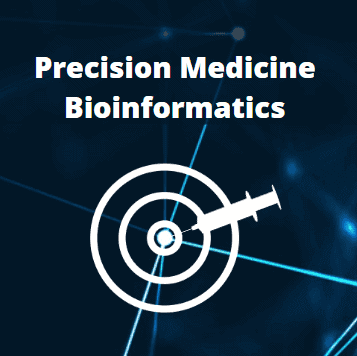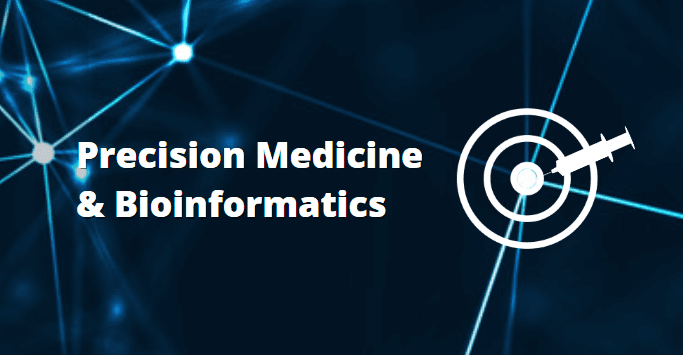Precision Medicine Bioinformatics: An Overview
- 5th December 2022
- Posted by: Breige McBride
- Categories: Bioinformatics, Biomarkers

When it comes to precision medicine, bioinformatics plays a key role. In this blog we explain what precision medicine is and how bioinformatics analyses can advance precision medicine research.
What is precision medicine?
Precision medicine is the tailoring of disease prevention and therapeutic strategies to an individual’s genetics whilst simultaneously considering lifestyle and environmental influences. The term ‘precision medicine’ is now eclipsing the term ‘personalised medicine’, though each refers to the same branch of medicine.
In disease areas especially variable from person to person, such as cancer, precision medicine is particularly important. This is because it is central to determining the correct diagnosis and selecting the best course of treatment for individuals. However, there are several data related challenges which must be addressed (via precision medicine bioinformatics) for effective, personalised care. Firstly, epidemiological and clinical data must be integrated with genomic and molecular profiling data to gain insight into the mechanistic underpinnings of the disease of individual patients. Secondly, sufficient computing power and expertise are essential to process, visualise, and interpret patient data in the scale at which it is available. Finally, patient data must be protected, maintained, and securely handled and shared where necessary. We can address these challenges through the use of bioinformatics, the computational analysis of large-scale biological data sets.
Application of bioinformatics in precision medicine
Bioinformatic approaches usually consist of reproducible workflows which extract data and examine data quality prior to downstream integration and analysis of multiple data types. Importantly, we can standardise bioinformatics pipelines across patients, so that with sufficient computing power, analysis of patient data is high-throughput. This is essential when dealing with the volume of data and subsequent analysis required to tailor medicine to the individual.

Specifically, researchers can use bioinformatics tools to identify genetic variants which cause or contribute to disease generation in a population. It is then possible to use these biomarkers in future to diagnose patients more accurately. Further to this, we can use bioinformatics to determine how patients respond, both positively and negatively, to certain therapeutics. We can combine biomarker analysis with clinical data to inform patient response to retrospectively stratify patients based on their genotype. This is ultimately beneficial for two reasons. Firstly, it enables the selection of the most effective treatment for an individual based on their specific disease. Secondly, it can minimise side effects and adverse drug reactions in populations with genotypes which respond poorly, or dangerously, to a therapeutic.
How Fios Genomics can support precision medicine research with bioinformatics
At Fios Genomics we are experts in analysing complex biological data sets. We also have a wealth of experience in integrating omics data from multiple sources with clinical data, to inform patient outcomes. Our previous projects include disease biomarker discovery and determining the predictive and prognostic nature of disease biomarkers. We also have experience stratifying patients based on their genome, particularly with respect to genetic variants they may harbour, and their response to individual and combination therapeutics. Incorporation of these types of analyses, especially as part of clinical trials, will provide a foundation for medicine to be more readily tailored to the individual in the future.
See also
Bioinformatics analyses for cell and gene therapy research
Bioinformatics and the pharmaceutical industry
Leave a Reply
You must be logged in to post a comment.

